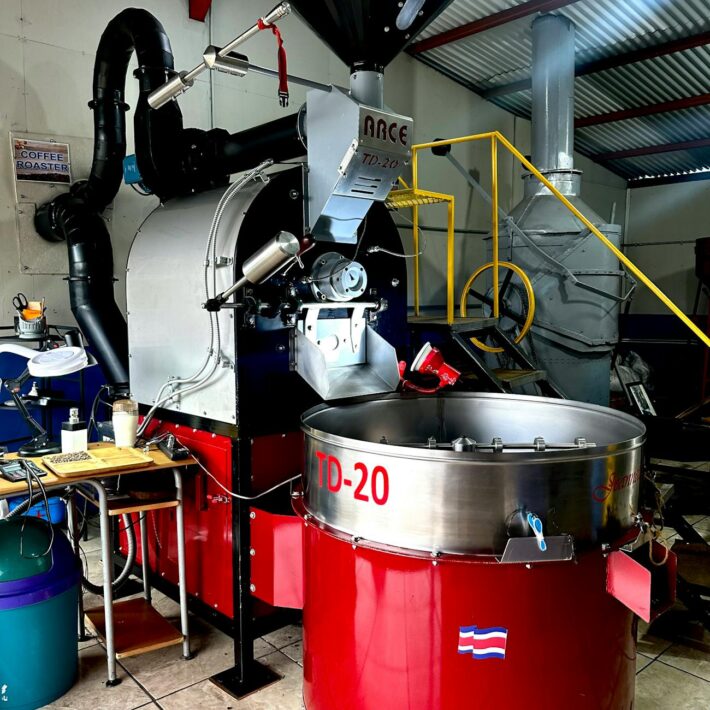Hazardous Material Transport Business Ideas to Start in 2024

Contents
Hazardous Material Transport Business Ideas to Start in 2024
In today's rapidly evolving economy, the need for safe transport services for hazardous materials has snagged the attention of entrepreneurs everywhere. Whether it’s managing medical waste or transporting chemicals safely, there's tremendous demand—and great potential—in this niche market. For small business owners thinking of a unique venture, the hazardous material transport industry offers both challenge and opportunity.
Overview of Hazardous Material Transport
Understanding what hazardous materials entail is crucial for anyone considering starting a business in this field. Think of hazardous materials as substances that could pose a risk to health, safety, or the environment if they are not handled correctly.
Definition of Hazardous Materials
Hazardous materials include a variety of substances, such as:
- Chemicals (like acids or solvents)
- Biological wastes (such as medical resins)
- Radioactive materials
- Heavy metals (like lead and mercury)
Each of these substances requires specialized handling and transportation protocols to prevent accidents and ensure safety.
Regulatory Landscape
Transporting hazardous materials isn't as simple as loading them into a truck and driving off. Various regulations must be followed. Key regulatory bodies include:
- Occupational Safety and Health Administration (OSHA)
- Department of Transportation (DOT)
- Environmental Protection Agency (EPA)
These organizations enforce laws designed to protect human health and the environment while ensuring that hazardous materials are transported properly. Understanding these regulations—as well as local and state laws—is fundamental for anyone deliberating in this field.
Business Ideas in Hazardous Material Transport
For entrepreneurs eager to tap into this specialized area, a wide array of business opportunities exists. Here’s a deeper dive into various business ideas:
Hazardous Waste Disposal Transport
Specializing in transporting hazardous waste to appropriate disposal facilities is essential. It requires:
- Compliance with environmental regulations
- Knowledge of safe loading and unloading protocols
Organizations depend on these services to responsibly handle waste from industries like manufacturing and healthcare.
Chemical Distribution Services
Companies needing to transport various chemicals can provide a critical service. To successfully run this business, you’ll need specialized vehicles capable of safely carrying volatile substances while ensuring compliance with regulations.
Medical Waste Transport
Healthcare facilities generate waste that needs safe, reliable transport to processing or disposal sites. This includes:
- Sharps (needles, blades)
- Pathological waste
- Non-hazardous medical waste
Businesses in this sector play a vital role in protecting public health.
Oil and Fuel Transport
Transporting oil and fuel demands strict adherence to safety protocols. This industry involves:
- Specialized training
- Safety notices on packaging
Careless mistakes can lead to environmental disasters and hefty fines, making it crucial to stay informed of regulations and best practices.
Radioactive Material Transport
A highly specialized sector, transporting radioactive materials requires thorough inspections, specialized equipment, and extensive staff training. Only those with proper certification in handling can operate in this field.
Hazardous Material Freight Brokerage
Acting as an intermediary, this business connects companies that need to ship hazardous materials with compliant transporters. It’s vital to understand the complexities of logistics in this field, enabling you to meet your clients' needs effectively.
Transporting Asbestos and Lead Waste
These hazardous materials require unique handling and equipment. A specialization in their transport can fill an essential niche, ensuring regulatory compliance for construction and renovation projects.
Waste Oil Collection and Transport
With growing environmental concerns, setting up a business to collect and transport waste oils for recycling or safe disposal presents a timely opportunity that marries profitability with sustainability.
Pesticide and Herbicide Transport
Agriculture remains a robust industry, and transporting pesticides and herbicides while adhering to agricultural regulations spells opportunity. Make sure all personnel are trained in handling these hazardous materials.
Transport for Hazardous Construction Materials
Many construction materials can be classified as hazardous. Providing secure transport for these items ensures that businesses can follow guidelines while meeting deadlines.
Transporting Hazardous Materials for Events
Events necessitating specialized materials can create unique opportunities. From festivals using chemicals for staging or exhibits to labs setting up for presentations, event transport is indispensable for success.
Challenges and Considerations in Hazardous Material Transport
Operating a business in this niche isn't without challenges. Here are some hurdles to consider:
Compliance and Liability Risks
With many strict regulations, ensuring compliance is crucial. Non-compliance can bring legal liabilities, hefty fines, and reputational damage. Regular audits and employee training can mitigate risks.
Specialized Training and Certifications
Staff handling hazardous materials need specialized training and certification. Without proper knowledge, the risks increase dramatically, starting from improper handling to exposure and pollution.
Insurance Needs for Hazardous Material Transport
Carrying the right insurance is fundamental. Seek insurance that covers the unique risks associated with transporting hazardous materials.
Marketing Your Hazardous Material Transport Business
To make any business successful, effective marketing strategies are critical. Here are some approaches for the hazardous material transport sector:
Building Credibility and Trust
Given the sensitivity of the work, building credibility is of utmost importance. Provide proof of compliance with all necessary regulations and safety protocols to encourage confidence among potential clients.
Networking with Industry Players
Form strategic connections with regulatory bodies and industry associations. Networking can lead to potential partnerships and clients seeking reliable transport services.
Using Digital Marketing Strategies
Look into digital marketing to enhance your visibility. Consider creating compelling content that uses keywords like hazardous materials transport business idea, logo design, and brand identity to attract your target audience.
Conclusion
The potential within the hazardous material transport industry is vast, making it an exciting area for small business owners to explore. By venturing into this niche, you can play a crucial role in ensuring around-the-clock safety for communities and the environment. So step up, make the plunge, and start devising your action plan today! After all, success comes to those bold enough to seize the moment and fill a vital need in their communities.
 Photo by Manoz Gowda
Photo by Manoz Gowda

As our Chief SEO & Branding Strategist, Robert Ellison is a digital marketing visionary with over 25 years of experience transforming brands through smart, data-driven SEO and impactful storytelling. Known for his expertise in aligning technical SEO with authentic brand narratives, he leads our team in creating strategies that boost search rankings while building strong, sustainable brand identities. A trusted advisor and frequent industry speaker, Robert combines deep technical knowledge with creative insight, helping our clients not only reach the top of search results but also genuinely connect with their audiences.








